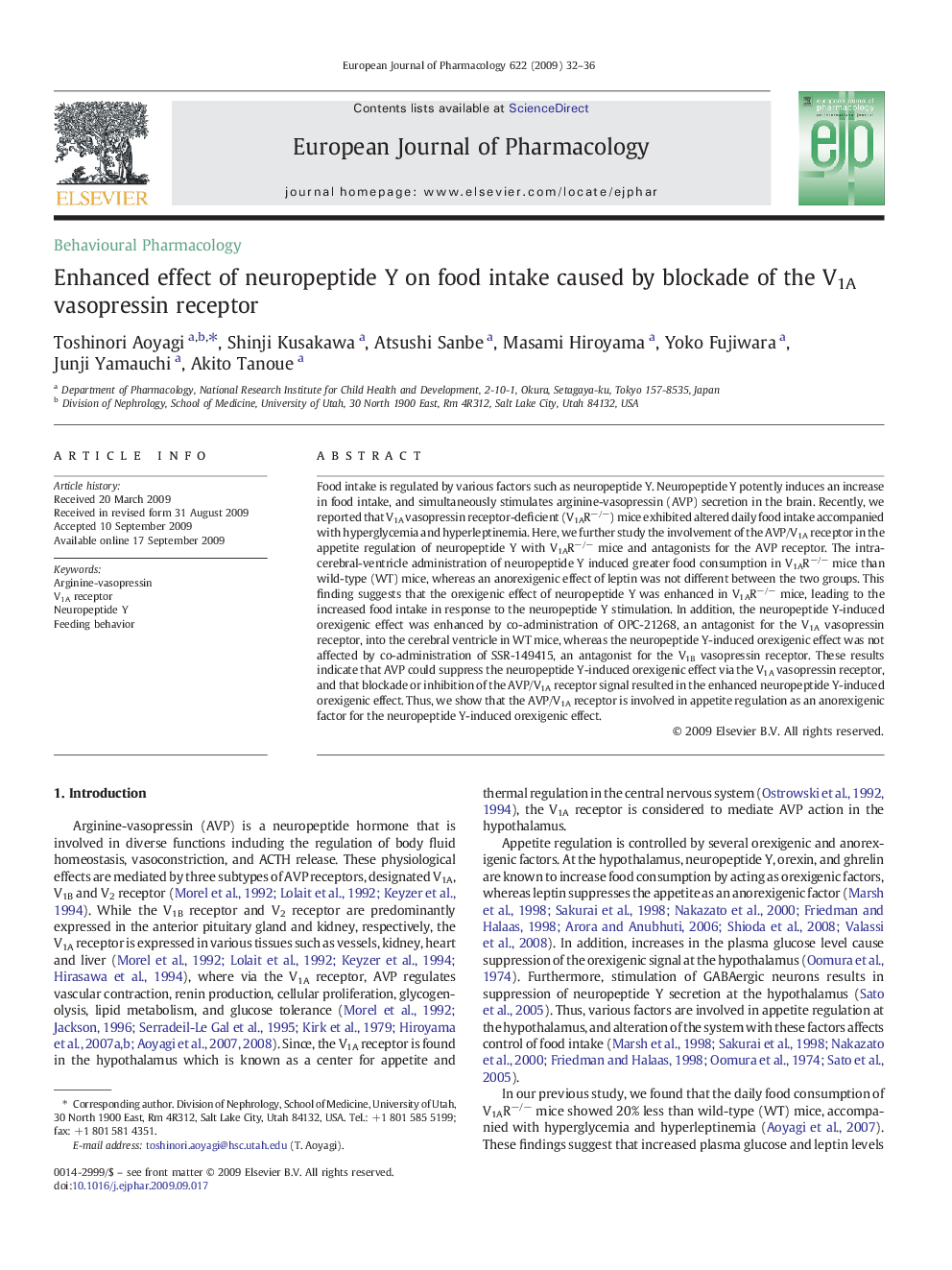| Article ID | Journal | Published Year | Pages | File Type |
|---|---|---|---|---|
| 2534006 | European Journal of Pharmacology | 2009 | 5 Pages |
Food intake is regulated by various factors such as neuropeptide Y. Neuropeptide Y potently induces an increase in food intake, and simultaneously stimulates arginine-vasopressin (AVP) secretion in the brain. Recently, we reported that V1A vasopressin receptor-deficient (V1AR−/−) mice exhibited altered daily food intake accompanied with hyperglycemia and hyperleptinemia. Here, we further study the involvement of the AVP/V1A receptor in the appetite regulation of neuropeptide Y with V1AR−/− mice and antagonists for the AVP receptor. The intra-cerebral-ventricle administration of neuropeptide Y induced greater food consumption in V1AR−/− mice than wild-type (WT) mice, whereas an anorexigenic effect of leptin was not different between the two groups. This finding suggests that the orexigenic effect of neuropeptide Y was enhanced in V1AR−/− mice, leading to the increased food intake in response to the neuropeptide Y stimulation. In addition, the neuropeptide Y-induced orexigenic effect was enhanced by co-administration of OPC-21268, an antagonist for the V1A vasopressin receptor, into the cerebral ventricle in WT mice, whereas the neuropeptide Y-induced orexigenic effect was not affected by co-administration of SSR-149415, an antagonist for the V1B vasopressin receptor. These results indicate that AVP could suppress the neuropeptide Y-induced orexigenic effect via the V1A vasopressin receptor, and that blockade or inhibition of the AVP/V1A receptor signal resulted in the enhanced neuropeptide Y-induced orexigenic effect. Thus, we show that the AVP/V1A receptor is involved in appetite regulation as an anorexigenic factor for the neuropeptide Y-induced orexigenic effect.
